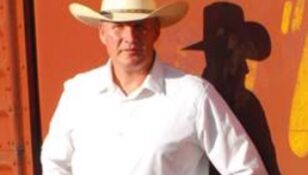Curiosity: The Key to Strategic Leadership Success

As a strategic leader, your curiosity is key to revealing innovation, creativity, and success in a rapidly changing business environment. By cultivating a curious mindset, you'll drive progress, strengthen relationships, and enhance problem-solving within your organization. Genuine curiosity encourages deeper understanding, promotes creative solutions, and supports continuous learning and humility. However, barriers like stress and performance-oriented mindsets can stifle curiosity. By adopting a learning-oriented approach, asking perceptive questions, and allocating time for stress management, you'll amplify curiosity and drive growth. Investigate how to leverage curiosity's power to propel your leadership success and reshape your organization.
Benefits of Curious Leadership
Curiosity in leadership is a catalyst for growth, driving innovation and progress within organizations. When you cultivate curiosity as a leader, you'll open up numerous benefits that enhance your leadership effectiveness.
By embracing a curious mindset, you'll encourage innovation, promoting creative solutions to complex problems. You'll also strengthen relationships with your team members and stakeholders, building deeper connections through genuine interest.
Furthermore, curiosity promotes continuous learning, emphasizing the importance of humility and the desire to learn from various sources. This, in turn, enhances problem-solving and encourages adaptability, preparing you to maneuver rapidly changing environments with flexibility.
The Art of Genuine Curiosity
Frequently, leaders attempt to project an image of curiosity without genuinely accepting the underlying mindset. You can't fake curiosity; it requires a willingness to listen and engage authentically. To cultivate genuine curiosity, focus on active listening and authentic engagement.
| Curiosity Mindset | Authentic Engagement | Outcome |
|---|---|---|
| Genuinely interested | Ask open-ended questions | Deeper understanding |
| Focus on learning | Practice active listening | Meaningful connections |
| Welcome uncertainty | Encourage diverse viewpoints | Innovative solutions |
Overcoming Barriers to Curiosity
As you focus on cultivating genuine curiosity, you may encounter obstacles that hinder your ability to ask questions, listen actively, and engage authentically.
Stress can be a significant barrier, causing mental exhaustion and decreasing your ability to think creatively. Effective stress management is essential to overcoming this hurdle. By allocating time to manage stress, you can enhance your curiosity and creativity.
A mindset change is also necessary, shifting from a performance-oriented approach to one that values learning and exploration. As you approach discussions with excitement to learn, you'll ask more perceptive questions, leading to deeper connections and understanding.
Fostering a Curious Culture
In today's fast-paced business environment, leaders who prioritize curiosity are better equipped to drive innovation and stay ahead of the curve.
By cultivating a curious culture, you can encourage a mindset shift within your organization, driving employees to think creatively and approach challenges with a sense of inquiry.
To achieve this, consider implementing curiosity workshops that promote inquiry-based learning. These workshops can provide a safe space for employees to ask questions, challenge assumptions, and investigate new ideas.
By doing so, you can create a culture that values curiosity and recognizes its role in driving growth and innovation.
As a result, your organization will be better positioned to adapt to changing market conditions and stay ahead of the competition.
The Power of Inquiry
Three key elements make inquiry a powerful tool in strategic leadership: its ability to spark new ideas, challenge assumptions, and cultivate a deeper understanding of complex issues.
By leveraging inquiry techniques and questioning strategies, you can reveal new viewpoints and gain a more intricate understanding of the challenges you face.
- Spark new ideas by asking open-ended questions that encourage creativity and exploration
- Challenge assumptions by seeking diverse viewpoints and questioning established norms
- Cultivate a deeper understanding of complex issues by breaking them down into manageable components and analyzing each element
- Develop a growth mindset by embracing uncertainty and viewing challenges as opportunities for growth and learning
Curiosity in Action
Through the lens of strategic leadership, curiosity is converted from a passive trait into a powerful catalyst for growth and innovation.
You unleash this power by embedding curiosity techniques into your daily interactions. You're not just asking questions; you're employing curiosity practices that cultivate a culture of inquiry and exploration.
As you lead by example, your team becomes more adept at maneuvering through complex challenges, adeptly using multiple viewpoints to approach problems.
This culture shift impacts how you prioritize tasks, allocate time, and manage stress.
Your organization benefits from enhanced creativity, deeper connections, and a more innovative approach to problem-solving.
Cultivating Strategic Leadership Success
You set the tone for strategic leadership success by cultivating a culture that values exploration and inquiry. As a leader, you must nurture an environment where curiosity thrives, and your team feels empowered to ask questions and challenge assumptions.
This foundation will allow you to propel innovation, strengthen relationships, and maneuver rapidly changing environments with leadership adaptability.
- Emphasize continuous learning and humility in your leadership approach
- Encourage experimentation and calculated risk-taking to propel innovation
- Develop a strategic vision that incorporates diverse viewpoints and ideas
- Encourage open dialogue and constructive feedback to guarantee everyone's voice is heard
In Summary
You've now seen the life-changing influence of curiosity in driving strategic leadership success. By embracing a curious mindset, you'll promote a culture of open dialogue and exploration, leading to innovative solutions and deeper connections. As you prioritize genuine interest over mere performance, you'll enhance your leadership style and inspire your team to do the same. With curiosity at the helm, you'll reveal new opportunities, drive growth, and cultivate strategic leadership success that propels you forward.
Get a Free Demo and 30 Day Trial
See why Action Strategy Software is a top choice for small to medium sized organizations

Who is Charles Dayton, and Why Should You Listen to Him?
Introducing Charles Dayton
Meet Charles Dayton, CEO and Founder of Action Strategy, with two decades of experience in consulting with City Governments, Tribal Governments and corporations. He possesses the keen insight and expertise necessary to unlock your organization's potential. With his cutting-edge software, he empowers you to power through complexities and roadblocks, to deliver enviable growth.
Besides consulting, Charles is a family man, community leader and renowned artist.
